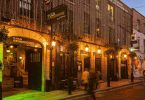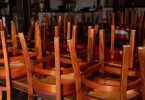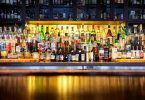Public Liability – a recessionary attraction?
Preliminary figures from the Injuries Board for 2010 sugest that Public Liability awards accounted for 15 per cent of all awards. According to these figures, one in five Public Liability awards (19 per cent) now relates to a licences premises.
Interestingly females tend to account for seven in 10 PL awards in direct contrast to data for workplace accidents, where females account for just over a quarter.
Insurance company FBD would agree.
Based on the amount paid as a percentage of the total, FBD Risk Management figures presented recently to the LVA indicate that half of PL payments were in respect of slips, trips and falls on wet floors (as a result of poor housekeeping), 20 per cent the result of an assault by a Third Party, eight per cent from falling down stairs and three per cent from falling from a height, four per cent from an assault by the insured or the insured’s employees and two per cent from accidental injury by the insured. Three per cent arose from burns, cuts and scalds.
FBD’s Manager of Technical Sales Walter Moran agrees that there has been a noticeable rise in PL claims in the last 18 months “particularly in the Dublin area” while the volume of PL claims is down a bit in the country.
“But where a duty of care can be demonstrated on the part of the publican, the claimants have tended to lose,” he says.
But it’s the possible resurgence in what used be known as the ‘compo culture’ that has become particularly worrying once again.
According to industry estimates, fraudulent claims cost some €100 million a year while the number of tip-offs about these has risen substantially in the past three years, from 308 in 2008 to 813 last year.
Prominent advertising and publicity campaigns around fraudulent claiming have helped change the climate towards such fraudsters but the licensed trade has in the past proven prime practice ground for such claims.
A woman sued a County Mayo pub claiming that the pub owner was negligent in allowing a bathroom floor to become wet. Fortunately, an independent witness (in an adjoining cubicle at the time) was able to give evidence that she’d heard two women talking, one of whom had whispered "just lie there". The pub owners had approached this witness shortly after the incident and she’d written down an account of her experience.
Elsewhere, a 37 year-old housewife was found to have blatantly manufactured a £30,000 damages claim against a public house after falling off a bar stool. A crucial part of the defence was that the pub owner could give evidence of a clear recollection of the plaintiff having fallen then getting up and continuing to drink.
Such approaches are a clear attempt to extort money from publicans and represent yet another flank to be defended in the present economic tempest in the licensed trade. There are precautions you can take (see Expert View).
“The later into the night a pub is open, the more likely it is to suffer at the hands of a compensation claim,” believes one senior Dublin publican who did not wish to be named, “People dancing where they shouldn’t be dancing, around the tables etc – any little slip or twist of the ankle could lead to a compensation claim.”
He pointed out too that the legal profession are actively looking for ‘victims’ to come forward and claim compensation “… and a lot of people, short of cash in these recessionary times, are taking them up on their call as they firmly believe that a judge is unlikely to give costs against them should they fail”.
But for the publican it’s a different story.
By the time they go through to Appeal stage proprietors could be looking at €20,000 to €40,000 already spent “… whereas both the ‘victim’ and his lawyer always get paid”.
For this reason, perhaps, 99 per cent of all claims are settled before they go to court or during the appeal system.
Unfortunately, in the licensed trade, no publican wants to admit that he or she’s subject to such a claim so progress is difficult.
There’s a tendency to brush it under the carpet when with their peers, stated the above publican who’s spending a lot of money on improving Health & Safety in his pubs.
“There’s undeniably a Health & Safety issue here too which we have to adhere to,” he added, “But it’s the ‘lively’ pubs that experience the biggest problem.
“That would be those extending their turnover by getting involved in new concepts, making that extra innovative effort – the consumers going to these places have no allegiance, it’s not like it’s their ‘local’.”
Settling on the steps
Insurance companies have been accused of being too fond of settling on the courtroom steps instead of going ahead with the case but FBD’s Walter Moran denies this.
“Everything has to be weighed up on the day,” he says, “When you have legal representatives, the insured, the injured party and witnesses all there, what looks good on a legal defence doesn’t always work out that way in reality.
“On going into court therefore, the costs tend to be much higher so we’re acting on the best interests of our clients and ourselves. Of course, since 2005, once the proper systems are in place in a premises, if we have a good defence, we fight it tooth-and-nail.
“We’re not handing out compensation ‘willy-nilly’ and invariably the client would be there and would be notified – more so these days.”
He also agrees that since 2009 the frequency of claims has gone up but he’s not saying that these have necessarily been successful in this recessionary climate.
Nevertheless, with legal fees accounting for 46 per cent of the €1 billion cost of personal injury compensation paid out every year, according to an MIAB study, such claims could be done without.

One in five Public Liability awards (19 per cent) now relates to a licences premises.








